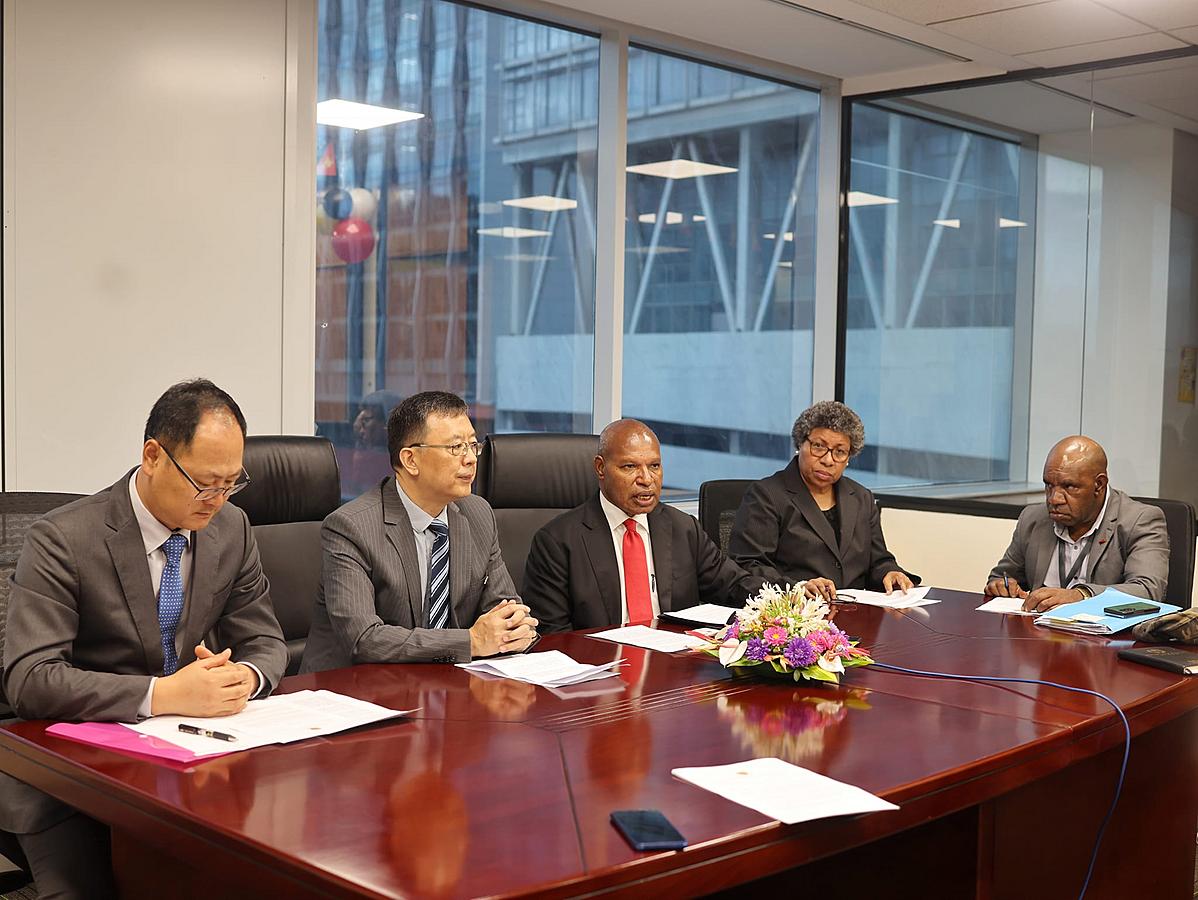

Minister for International Trade and Investment, Hon Richard Maru officially announced the commencement of the joint feasibility study for a possible Free Trade Agreement between Papua New Guinea (PNG) and the People’s Republic of China (PRC). Minister Maru made the announcement recently on the eve of Prime Minister, Hon. James Marape’s official state visit to China next week for the Belt and Road Summit in Beijing where one of the key agenda for discussion will be the Free Trade Agreement between the two countries.
“This joint feasibility study was agreed to at a meeting between our Prime Minister and the Chinese President, Xi Jinping during Prime Minister Marape’s state visit in 2021. This joint feasibility study will commence next week after the contract is being executed between the state through the National Trade Office and the consultants this Friday,” said Minister Maru.
“This feasibility study is of our highest priority as this will serve to further strengthen our trade and investment relationship with China which is our most important trading partner with two-way trade of approximately K15 billion each year and growing. Our second highest priority is to undertake similar study with Indonesia which has the biggest opportunity for us,” said Minister Maru.
Minister Maru thanked the Government and the People’s Republic of China for providing the funding to undertake this study. The PRC provided K1 million under the Grant Assistance Program and the Government of PNG provided K2 million for this study.
“This joint feasibility study is very critical for two reasons; Firstly, the National Trade Policy 2017-2032 stipulates that a Cost-Benefit Analysis (CBA) be conducted and all affected stakeholders to be consulted before committing the country to any form of Trade Negotiations or prior to signing any Trade Arrangement/Agreement amongst other guiding principles and measures. Secondly, China is a global economic superpower, and any trade and economic relations must be treated carefully on the socio-economic impact it will have particularly for a small economy like PNG. PNG’s exports are mainly raw and semi-processed, and the Government is embarking on policies and reforms towards downstream processing of our raw materials and to become a net exporter of processed goods to create employment and wealth for our people in the long term. Therefore, the study is important to determine what areas or sectors to open up and reserve sectors that are critical in line with Government policy for development. In the event that the Government decides to negotiate a Free Trade Agreement with China our negotiators need to have the data, facts, and figures in the respective sectors to maximize gains from the free trade,” said Minister Maru.
Minister Maru said the feasibility study will commence next week and should be completed within 70 days and negotiations should commence thereafter depending on the outcome of the study.
“The study will be undertaken by a group of consultants as the scope of study is very wide and covers a lot of sectors and or issues, such as trade in goods, trade in services, investment, intellectual property, MSMEs, climate change, and digital trade and development amongst others. PNG is a party to several bilateral, regional, and multilateral trading arrangements but we have not covered much of these issues in these agreements. It is, therefore, incumbent on us to do a proper analysis on the respective sectors,” said Minister Maru.
“I look forward to the outcome of the study and eventually a Free Trade Agreement between PNG and PRC that is beneficial to both countries,” added Minister Maru.